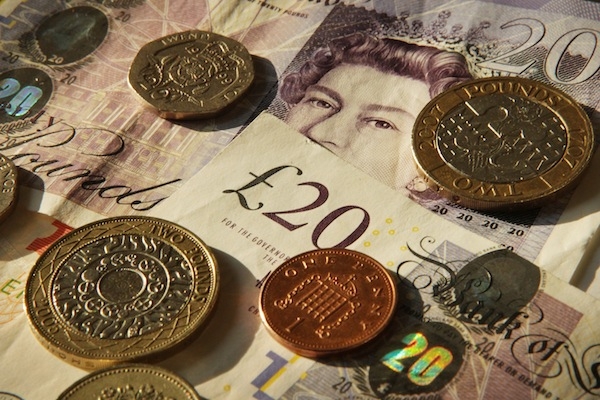It seems that Moody’s downgrade of UK government bonds on Friday night has — so far — had more effect on the headlines than the markets.
After the news on Friday night, the pound fell by about a cent against the dollar, from $1.525 to $1.515. And against the euro it fell from €1.157 to €1.147 (it’s fallen a little further this morning, to €1.144). But that’s no bigger than the drop on Wednesday on the news that Mervyn King and two other members of the Bank of England’s Monetary Policy Committee had voted in favour of more quantitative easing.
And it doesn’t seem to have raised the cost of borrowing much. The yield on ten-year government bonds did rise slightly from 2.11 per cent at close on Friday to 2.17 per cent this morning, though it’s since fallen back to 2.13 per cent now.
Meanwhile, the stock market has risen: the FTSE 100 is up 42 points since close on Friday, from 6339 to 6381.
The reason for the muted impact is not that investors don’t care about the UK’s ability to pay back its debts, but rather that the credit rating doesn’t give them any extra information. As Fidelity Worldwide Investment’s Andrew Wells put it this morning ‘The UK’s downgrade from triple-A is very much priced-in and anticipated by professional investors.’ ETX Capital’s Ishaq Siddiqi backs him up: ‘Traders are likely to shrug off the downgrade as it has been priced-in for some time and more importantly, does not fundamentally change the UK’s overall investment value.’ And Kit Juckes of Socite Generale says ‘The risk of a UK default is no higher today than it was a week ago’.
But that’s not to say the downgrade might not have a big economic impact, through its political impact — as Citi’s Michael Saunders warned in December:
‘Many investors currently seem to assume that the loss of the UK’s AAA rating would not, by itself, be a major problem for markets. However, a ratings downgrade would be a major blow for the government and hence, by adding to risks that the coalition parties do badly in the 2015 election, it would increase uncertainty over the implementation of fiscal austerity in the runup to the 2015 election and beyond it — and such uncertainties probably would be bad for sterling assets in our view.’






Comments